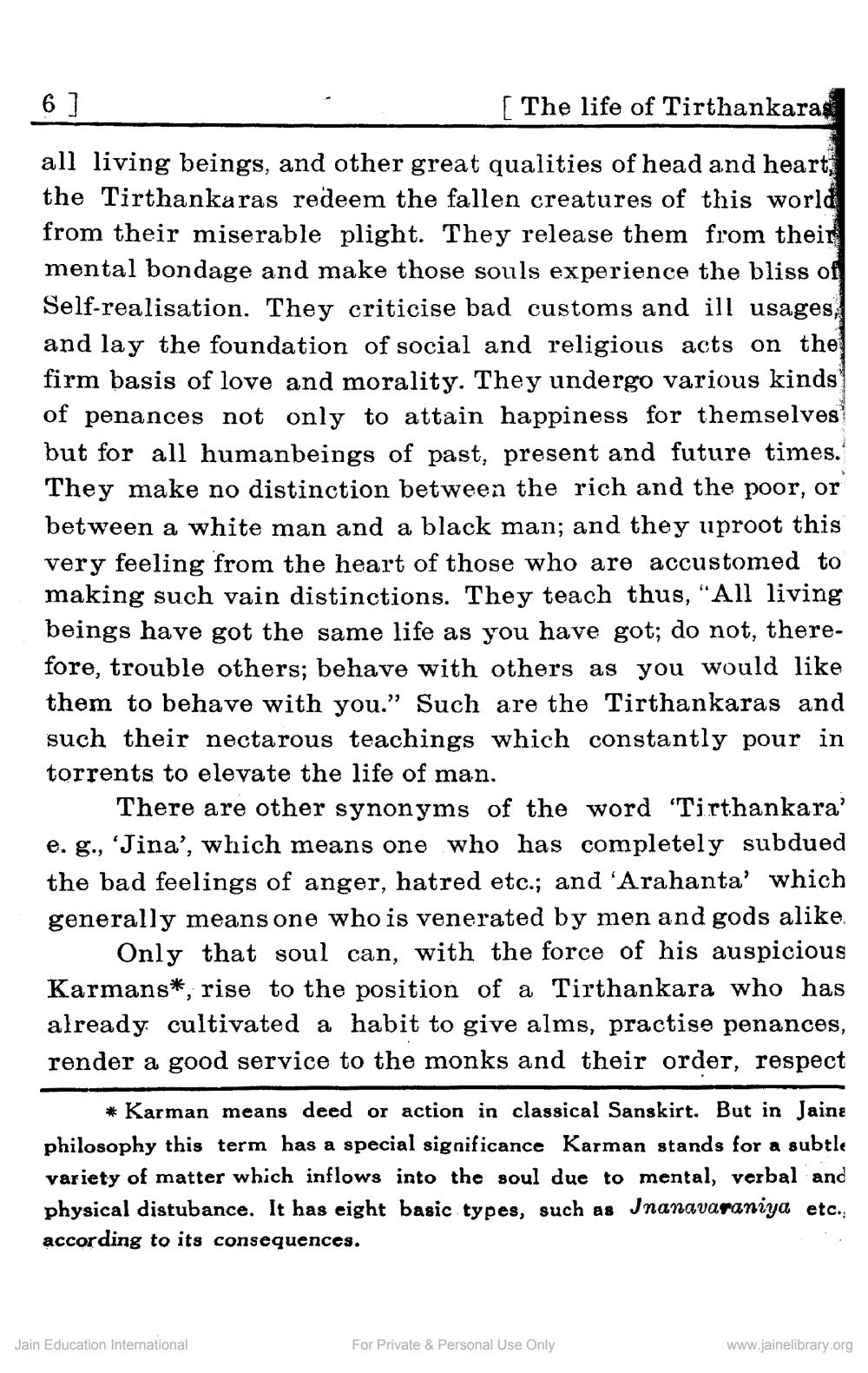________________
6 ]
[The life of Tirthankaras
all living beings, and other great qualities of head and heart, the Tirthankaras redeem the fallen creatures of this world from their miserable plight. They release them from their mental bondage and make those souls experience the bliss of Self-realisation. They criticise bad customs and ill usages, and lay the foundation of social and religious acts on the firm basis of love and morality. They undergo various kinds of penances not only to attain happiness for themselves but for all human beings of past, present and future times. They make no distinction between the rich and the poor, or between a white man and a black man; and they uproot this very feeling from the heart of those who are accustomed to making such vain distinctions. They teach thus, "All living beings have got the same life as you have got; do not, therefore, trouble others; behave with others as you would like them to behave with you." Such are the Tirthankaras and such their nectarous teachings which constantly pour in torrents to elevate the life of man.
There are other synonyms of the word "Tirthankara' e. g., 'Jina', which means one who has completely subdued the bad feelings of anger, hatred etc.; and 'Arahanta' which generally means one who is venerated by men and gods alike. Only that soul can, with the force of his auspicious Karmans*, rise to the position of a Tirthankara who has already cultivated a habit to give alms, practise penances, render a good service to the monks and their order, respect
* Karman means deed or action in classical Sanskirt. But in Jaine philosophy this term has a special significance Karman stands for a subtle variety of matter which inflows into the soul due to mental, verbal and physical distubance. It has eight basic types, such as Jnanavaraniya etc. according to its consequences.
Jain Education International
For Private & Personal Use Only
www.jainelibrary.org




